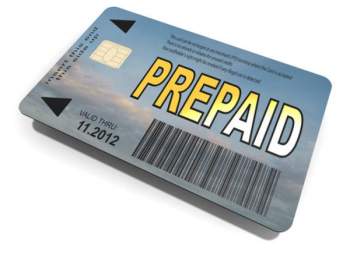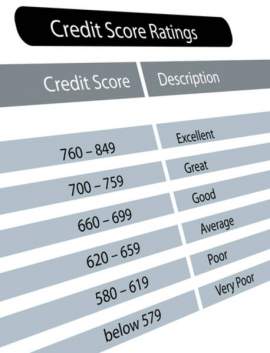
A Guide to Understanding Prepaid Credit Cards

What is a
Prepaid Credit Cards?
Prepaid Credit Cards are financial instruments
defined as ‘secured’ or ‘limited’ in nature. This means that a wide variety of
regulations with regard to associated credit limits, interest rates, annual
percentage rates (APR), the application process, and scheduled repayments may
exist.
Both individuals in possession of credit ratings
classified as ‘low’ or ‘poor’, as well as individuals without any credit
history, may become eligible to receive Prepaid Credit Cards.
Individuals undertaking efforts to rebuild
individual credit scores or ratings, as well as younger individuals interested
in becoming acclimated with the credit card process, may undertake Prepaid
Credit Cards. This allows for a low-risk lending endeavor with regard to both
the individual in possession of a Prepaid Credit Card, as well as the
associated lending institution.
Standards and Practices Typical within Prepaid
Credit Cards
Upon applying for a Prepaid Credit Card, both the
applicant’s credit score and credit rating will undergo analysis and assessment
from the applicable lending institution. The following may be applicable to the
approval process of a Prepaid Credit Cards:
Applying for Prepaid Credit Cards
The following stipulations may be applicable to
the application process and subsequent approval for the receipt of Prepaid
Credit Cards:
Individuals considered to be high-risk with regard
to the presumed repayment of outstanding balances, a classification oftentimes
rendered as a result of the analysis of credit history, may be required to
furnish a deposit prior to the receipt of Prepaid Credit Cards.
The furnishing of such a deposit allows for the
alleviation of risk through the provision of collateral. In the event that
default occurs with regard to repayment, the deposit is absorbed by the lending
institution.
Credit History of the Individual Applying for
Prepaid Credit Cards
Individuals in possession of credit scores
determined to be ‘poor’ or ‘low’ may not be able to become approved for
standard, unsecured credit cards. Furthermore, they may endure more difficult
experiences doing so resulting from the analysis of their respective credit
history.
However, the receipt of Prepaid Credit Cards may be both possible and
beneficial. Not only will an individual be able to receive a credit card in
lieu of credit history determined to be ‘poor’ or ‘low’, but prompt repayment of
Credit Cards for Bad Credit will typically result in the improvement of
individual credit scores and history.
Secured and Prepaid Credit Cards
Prepaid Credit Cards may require the presence of
‘surety’ formulated with the addition of a third party in addition to borrower
and the lender. Surety is defined as a third-party entity responsible for the
ultimate repayment of the credit card balance. In certain cases, a surety may
also be defined as a ‘guarantor’. In the event of the Principal’s failure to
repay the credit card balance, the responsibility of repayment will become that
of the Surety. Surety loans allow for heightened insurance with regard to the
lender with regard to the reduction of the risk of failure to satisfy
outstanding credit card balances.
Prepaid Credit Cards Assistance
In certain cases, the terms associated with
Prepaid Credit Cards may not be ideal for the individual in possession of these
types of credit cards, the prompt repayment, responsible usage, and the
compliance with the expressed terms of service will typically result in
increased credit limits and raised credit scores.
Individuals interested in applying for credit cards are encouraged to contact legal and financial professionals in order to better understand both the risks and ramifications implicit within any nature of credit cards.
NEXT: Caution: Keep Your Eye On Your Credit Rating





















